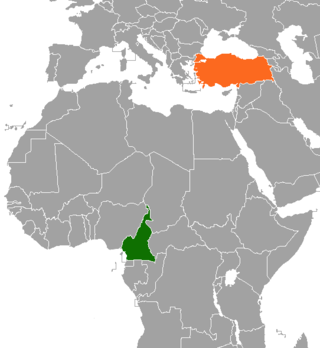Henry Armand Giroux is an American-Canadian scholar and cultural critic. One of the founding theorists of critical pedagogy in the United States, he is best known for his pioneering work in public pedagogy, cultural studies, youth studies, higher education, media studies, and critical theory. In 2002 Routledge named Giroux as one of the top fifty educational thinkers of the modern period.

Patricia J. Williams is an American legal scholar and a proponent of critical race theory, a school of legal thought that emphasizes race as a fundamental determinant of the American legal system.
Friedrich Kratochwil is a German university professor who studied at the University of Munich before migrating to the United States, then subsequently returning to Europe. He received a PhD from Princeton University.
Critical race theory (CRT) is an interdisciplinary academic field devoted to analysing how social and political laws and media shape social conceptions of race and ethnicity. CRT also considers racism to be systemic in various laws and rules, and not only based on individuals' prejudices. The word critical in the name is an academic reference to critical thinking, critical theory, and scholarly criticism, rather than criticizing or blaming individuals.

Derrick Albert Bell Jr. was an American lawyer, professor, and civil rights activist. Bell worked for first the U.S. Justice Department, then the NAACP Legal Defense Fund, where he supervised over 300 school desegregation cases in Mississippi.

Alicia Gaspar de Alba is an American scholar, cultural critic, novelist, and poet whose works include historical novels and scholarly studies on Chicana/o art, culture and sexuality.
Stuart Henry is professor emeritus, Criminal justice and former director of the School of Public Affairs, San Diego State University (2006–17). He has also been visiting professor of criminology at the University of Kent's School of Social Policy, Sociology and Social Research from 2008 to 2013 and visiting research scholar in sociology at the University of Hawaii, Manoa, 2017.
Richard Delgado is an American legal scholar considered to be one the founders of critical race theory, along with Derrick Bell. Delgado is currently a Distinguished Professor of Law at Seattle University School of Law. Previously, he was the John J. Sparkman Chair of Law at the University of Alabama School of Law. He has written and co-authored numerous articles and books, many with his wife, Jean Stefancic. He is also notable for his scholarship on hate speech and for introducing storytelling into legal scholarship.

David Cortright is an American scholar and peace activist. He is a Vietnam veteran who is currently Professor Emeritus and special adviser for policy studies at the Keough School of Global Affairs and Kroc Institute for International Peace Studies at the University of Notre Dame, and the author, co-author, editor or co-editor of 22 books. Cortright has a long history of public advocacy for disarmament and the prevention of war.
Angela P. Harris is an American legal scholar at UC Davis School of Law, in the fields of critical race theory, feminist legal scholarship, and criminal law. She held the position of professor of law at UC Berkeley School of Law, joining the faculty in 1988. In 2009, Harris joined the faculty of the State University of New York at Buffalo Law School as a visiting professor. In 2010, she also assumed the role of acting vice dean for research and faculty development. In 2011, she accepted an offer to join the faculty at the UC Davis School of Law, and began teaching as a professor of law in the 2011–12 academic year.
Shirley R. Steinberg is an educator, author, activist, filmmaker, and public speaker whose work focuses on critical pedagogy, transformative leadership, social justice, and cultural studies. She has written and edited numerous books and articles about equitable pedagogies and leadership, urban and youth culture, community studies, cultural studies, Islamophobia, and issues of inclusion, race, class, gender, and sexuality. Steinberg was the Research Chair of Critical Youth Studies at the University of Calgary for two terms, executive director of the Freire Project freireproject.org, and a visiting researcher at University of Barcelona and Murdoch University. She has held faculty positions at Montclair State University, Adelphi University, Brooklyn College, The CUNY Graduate Center, and McGill University. Steinberg directed the Institute for Youth and Community Research at the University of the West of Scotland for two years.

Ray Steiner Cline was an official at the United States Central Intelligence Agency and is best known for being the chief CIA analyst during the Cuban Missile Crisis.
Sidney Weintraub was an economist, foreign service officer, professor, non-fiction author, and novelist.
Ian F. Haney López is the Chief Justice Earl Warren Professor of Public Law at the University of California, Berkeley. He works in the area of racism and racial justice in American law.
Philip Wexler (1943-2023) was a professor emeritus at the Hebrew University of Jerusalem. He was first appointed in 2002 as Professor of Sociology of Education and then Unterberg Chair in Jewish Social and Educational History. Since retirement, he has been visiting professor in the Faculty of Human and Social Sciences at the University of Wuppertal, Germany.
Tommy J. "T. J." Curry is an African American scholar, author and professor of philosophy. As of 2019, he holds a Personal Chair in Africana philosophy and Black male studies at the University of Edinburgh. In 2018, he won an American Book Award for The Man-Not: Race, Class, Genre, and the Dilemmas of Black Manhood.

Tanzania–Turkey relations are the foreign relations between Tanzania and Turkey. The Turkish embassy in Dar es Salaam first opened in 1979, although the Ottoman Empire had previously opened a consulate in Zanzibar, now a part of Tanzania, on March 17, 1837.

Liberia–Turkey relations are the foreign relations between Liberia and Turkey. The Turkish ambassador in Accra, Ghana is also accredited to Liberia since 2013. Liberian Embassy in Brussels is accredited to Turkey. Turkey will be opening an embassy in Liberia’s capital Monrovia 'as soon as possible.'

Cameroon–Turkey relations are the foreign relations between Cameroon and Turkey.
In critical race theory, the black–white binary is a paradigm through which racial history is presented as a linear story between White and Black Americans. This binary has largely defined how civil rights legislation is approached in the United States, as African Americans led most of the major racial justice movements that informed civil rights era reformation. The paradigm conceptualizes Black and White people as the two predominant racial groups, viewing all racism accordant to anti-blackness, and the Black–White relation as central to racial analysis. According to critical race scholars, the binary acts to govern racial classifications and describe how race is understood and approached politically and socially throughout American history. The black-white binary is a product of white socialization and reduces race relations to an oppressor/oppressed dichotomy.







